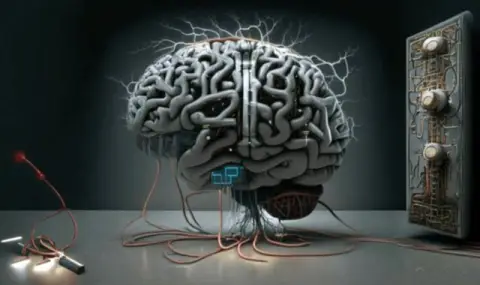Researchers from the California Institute of Technology (Caltech) were able to estimate the speed of human thought - it turned out that it is only 10 bits per second - even processors 50 years ago worked faster. Interestingly, human sensory systems collect data about the environment at a speed of a billion bits per second, which is 100 million times faster than the speed of mental processes.
The researchers rely on methods of information theory and data on human behavior: reading, writing, video games and solving a Rubik's cube. “This is an extremely low number“, says the head of the study, Professor Markus Meister. - At any given moment, we extract only 10 bits out of a trillion that our senses perceive, and we use these 10 bits to perceive the world around us and make decisions. This creates a paradox: What does the brain do to filter all this information?
The human brain contains more than 85 billion neurons, a third of which are located in the cerebral cortex and are involved in high-level thinking. Individual neurons are powerful information processors and can easily transmit more than 10 bits of information per second, but for some reason they don’t. Meister believes that neuroscientists need to address these paradoxes in future research.
Another question that the new study raises is why the brain processes one thought at a time, rather than several in parallel, as our sensory systems do. For example, a chess player contemplating his next move can only explore one possible sequence at a time, rather than several at once. Researchers suggest that this may have something to do with the way our brains evolved.
The earliest creatures with primitive nervous systems used their brains primarily for navigation, finding food, and hiding from predators. If the human brain evolved from these simple systems, it makes sense that it could only follow one "path" of thought at a time. “Human thinking can be thought of as a form of navigation in the space of abstract concepts,“ the researchers say. They believe that this limitation - one thought per "beat" - is encoded in the architecture of the brain.
“Our ancestors chose an ecological niche where the world was slow enough to make survival possible,“ the scientists say. “In reality, 10 bits per second is only needed in the worst-case scenarios, and most of the time our environment changes at a much more leisurely pace.“
A new estimate of the speed of human thought may disprove some futuristic scenarios. It seems that dreams of a direct high-speed interface between the human brain and a computer will remain a pipe dream, as the human brain will slowly communicate via a neural interface at 10 bits per second.
